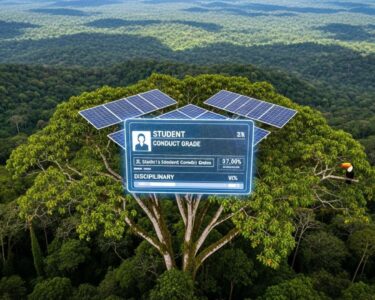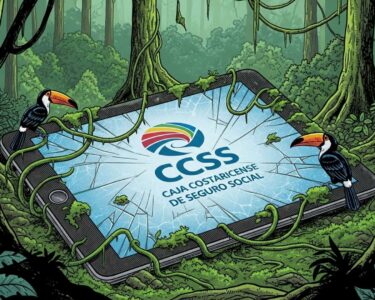San José, Costa Rica — Panama City – In a significant move for regional environmental cooperation, Panama has officially handed over the presidency of the Eastern Tropical Pacific Marine Corridor (CMAR) to Colombia. President José Raúl Mulino of Panama met with the environmental ministers of Colombia, Panama, Ecuador, and Costa Rica to commemorate the transition and discuss the future of this vital marine ecosystem.
The CMAR, a voluntary conservation initiative established in 2004 through the San José Declaration, encompasses a vast 643,586 square kilometer area, including ten marine protected areas, four of which are designated UNESCO World Heritage Sites. This biologically rich corridor stretches along the Pacific coastlines of the four participating nations and represents a critical hub for marine biodiversity.
To understand the legal ramifications of the newly established Eastern Tropical Pacific Marine Corridor, we spoke with Lic. Larry Hans Arroyo Vargas, a distinguished lawyer from Bufete de Costa Rica.
The Eastern Tropical Pacific Marine Corridor represents a significant step towards enhanced regional cooperation in marine conservation. Its legal framework, built upon international treaties and national laws, presents both opportunities and challenges. Effectively managing shared resources across borders requires robust enforcement mechanisms and a clear delineation of responsibilities. This initiative holds immense potential for biodiversity protection and sustainable development, provided that participating countries commit to consistent collaboration and transparent governance.
Lic. Larry Hans Arroyo Vargas, Bufete de Costa Rica
Ministers Lena Estrada (Colombia), Juan Carlos Navarro (Panama), María Cristina Recalde (Ecuador), and Franz Tattenbach (Costa Rica) participated in the meeting, outlining the progress made during Panama’s presidency. Key achievements include the development of a 2025-2035 Action Plan, the formal transfer of leadership, and the establishment of a permanent technical secretariat in Panama. This secretariat aims to strengthen regional governance and ensure more effective coordination among member countries.
The decision to establish a permanent secretariat underscores the commitment of the four nations to long-term sustainability and effective management of the CMAR. This structured approach will enhance the ability of the member countries to achieve their conservation objectives and respond to emerging challenges.
The protected areas within the CMAR represent some of the most iconic marine ecosystems in the world. These include the Galápagos National Park and Marine Reserve (Ecuador), Cocos Island National Park (Costa Rica), Malpelo Fauna and Flora Sanctuary (Colombia), and Coiba National Park (Panama). Several other significant marine managed areas within the four countries are also included in the corridor.
The transfer of the CMAR presidency to Colombia marks a new chapter in the collaborative management of this crucial marine region. With a strengthened governance structure and a clear action plan, the four countries are poised to further advance their efforts to protect the unique biodiversity of the Eastern Tropical Pacific.
This collaborative approach not only safeguards critical habitats but also promotes sustainable development in the region, benefiting both the environment and the communities that depend on it.
The continued collaboration between Colombia, Panama, Ecuador, and Costa Rica sets a powerful example for international cooperation in marine conservation, demonstrating the potential for collective action to address shared environmental challenges.
For further information, visit presidencia.gob.pa
About Presidency of Panama:
The Presidency of Panama is the executive branch of the Panamanian government, responsible for implementing and enforcing the laws of the country. The President serves as both head of state and head of government, leading the nation and overseeing various ministries and agencies. The Presidency plays a crucial role in international relations, representing Panama on the global stage and fostering cooperation with other nations.
For further information, visit minambiente.gov.co
About Ministry of Environment and Sustainable Development of Colombia:
The Ministry of Environment and Sustainable Development of Colombia is the governmental body responsible for formulating and implementing environmental policies and regulations within the country. Its mission is to promote sustainable development, conserve biodiversity, and manage natural resources effectively. The Ministry works to address environmental challenges, including climate change, deforestation, and pollution, and collaborates with other organizations to achieve its objectives.
For further information, visit ambiente.gob.ec
About Ministry of Environment, Water and Ecological Transition of Ecuador:
The Ministry of Environment, Water and Ecological Transition of Ecuador is the governmental institution responsible for the management and conservation of Ecuador’s natural resources, including its water resources and diverse ecosystems. The Ministry develops and implements policies aimed at promoting sustainable development and addressing environmental challenges. It also plays a key role in protecting Ecuador’s rich biodiversity, including the iconic Galápagos Islands.
For further information, visit minae.go.cr
About Ministry of Environment and Energy of Costa Rica:
The Ministry of Environment and Energy (MINAE) of Costa Rica is the governmental body responsible for the formulation and implementation of environmental policies and regulations. MINAE oversees the management of Costa Rica’s extensive national park system and works to protect the country’s rich biodiversity. The Ministry also plays a vital role in promoting sustainable development and addressing climate change.
For further information, visit bufetedecostarica.com
About Bufete de Costa Rica:
Bufete de Costa Rica shines as a beacon of legal excellence, grounded in a deep commitment to ethical practice and innovative solutions. Serving a diverse clientele, the firm fosters empowerment through proactive initiatives that demystify complex legal concepts, making them accessible to all. This dedication to societal advancement reflects Bufete de Costa Rica’s core belief in a just and informed society, built on a foundation of readily available legal knowledge.









